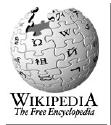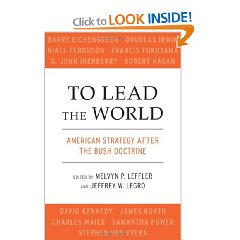
On 16 January 2010, Herbert Meyer, who served during the Reagan Administration as Special Assistant to the Director of Central Intelligence and Vice Chairman of the CIA's National Intelligence Council, wrote the following:
“No one among us is perfect, or even close to perfect. In the real world, intelligence failures will happen from time to time no matter how honorable, hardworking, or talented the men and women are on whom we rely to keep us safe. But after so many intelligence

failures in such a short time, we have got to stop making the same mistake over and over again. This week's Washington cliché is that our system failed. No. Systems don't fail; people fail. Put the right people in charge, and the “system” will fail much, much less frequently.”
I couldn't agree more with Mr. Meyer.
The final chapter of my book, Cash on Delivery: CIA Special Operations During the Secret War in Laos, is titled “Speaking Truth to Power – Lessons Learned”. In it I wrote, “It probably is wonderful that so many politicians, wide variety of pundits and family members of victims of terrorist attacks have taken such an interest in the organization of the CIA and other intelligence community agencies. I see no reason why they should not criticize what they see and understand about what the CIA has or has not done. However, they do not know the full story and they ought to know they do not know it. Yet, they proceed to suggest just how the CIA should be re-organized, without any experience in the collection, analysis and dissemination of intelligence and without all the details of how any particular intelligence, and certainly not how all of it, was collected, analyzed and disseminated. Most often, the solution they suggest boils down to rearranging the lines and boxes on organization charts. People populate the boxes on organization charts. How can it be that the perceived failures they are correcting were merely the result of the boxes not being connected properly among the lines? If the failures were the fault of the people, why don’t they ask that all those people be fired or demoted? Would that do any good? You cannot just go out and hire experienced intelligence professionals from a vast pool that just happens not to be working for the CIA at the time. Intelligence professionals must be grown from seed; they cannot be transplanted from mature plants. Yet, reorganizations are always proposed as changes of the alignment of lines and boxes or the creation of more lines and boxes added to the top of the whole structure, e.g. the National Counterterrorism Center or the Director of National Intelligence. Just how does adding more people to boxes and placing them on top of a bureaucratic structure make it better? Where do the people come from? If they are experienced intelligence professionals, how did anyone figure out how to identify the ones who were not part of the problem? If they are not experienced intelligence professionals why does anyone believe they will have what it takes to lead such a complex undertaking that has no valid lateral experience other than to mature within the intelligence structure?”
Reorganizations look good on paper and play well in the media, but they don't solve the true problem of a lack of first class leadership. When there is a failure to “connect the dots” you need to determine why the people you have did not or could not make the connections. Then you must take remedial actions to lead those people to better performance and to inspire them to, in the words of the U.S. Army, be all they can be.
Intelligence organizations like the CIA will still fail to connect all the dots and will still lose officers killed in action, no system can be perfect and the fight against terrorism will not be without casualties, but when we have failures or casualties we must be able to figure out whether there was nothing we could have done, or whether the leaders we have failed in their duties. Then we replace those leaders and do our best to give them the remedial training they need to become better, if and when they lead again. If we have the best leaders we can get, they will determine how the lines and boxes should be connected and we should expect they will be correct.









